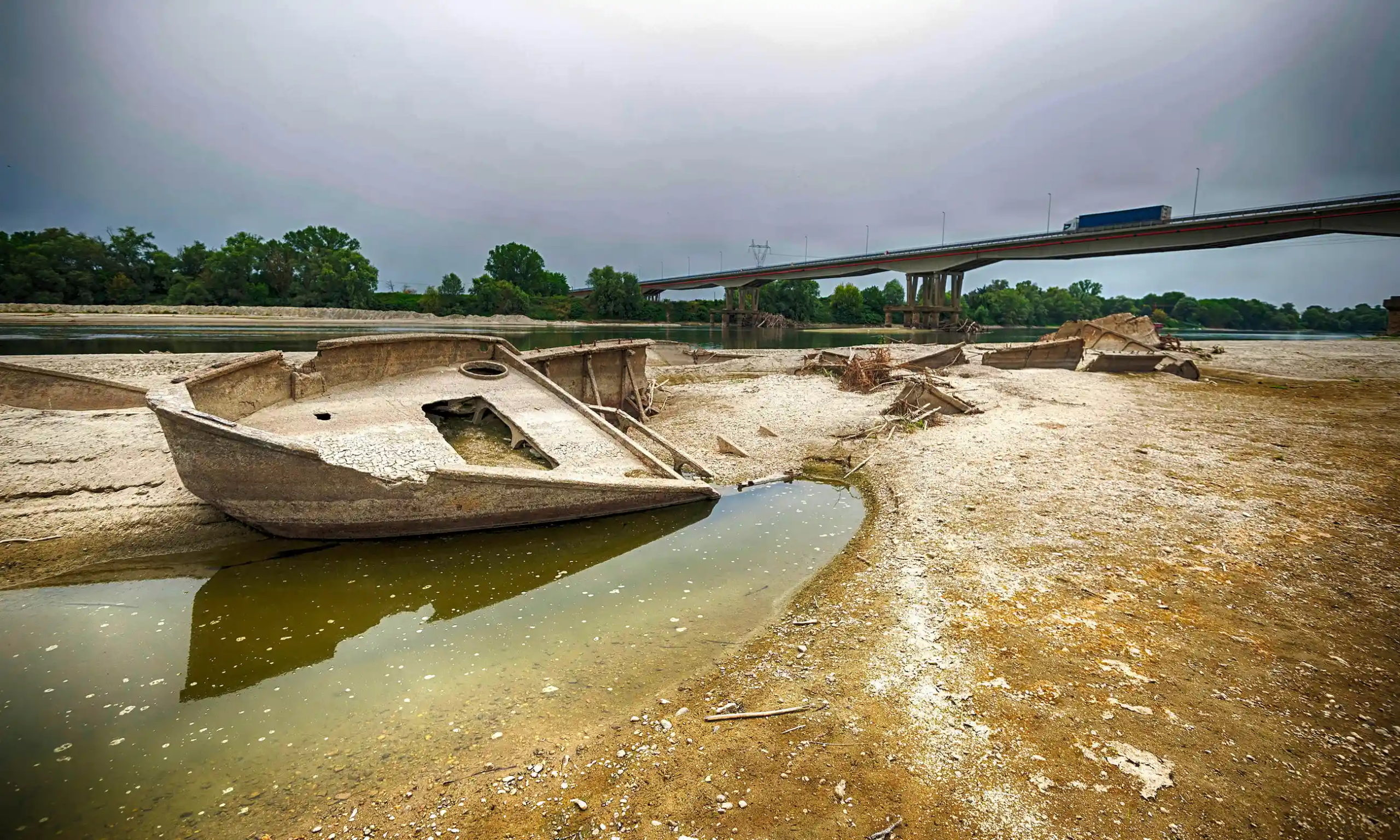Veron: The end is in sight for the world’s coral reefs
By Joe Romm
December 7, 2010Reefs are the ocean’s canaries and we must hear their call. This call is not just for themselves, for the other great ecosystems of the ocean stand behind reefs like a row of dominoes. If coral reefs fail, the rest will follow in rapid succession, and the Sixth Mass Extinction will be upon us — and will be of our making.
When J.E.N. Veron speaks, we all should listen. Veron is the former chief scientist of the Australian Institute of Marine Science. He is principal author of 8 monographs and more than 70 scientific articles on the taxonomy, systematics, biogeography, and the fossil record of corals. His books include the three-volume Corals of the World and A Reef in Time: The Great Barrier Reef from Beginning to End (2008). His research has taken him to all the major coral reef regions of the world during 66 expeditions. In a Yale e360 piece reprinted below, Veron explains that “the science is clear: Unless we change the way we live, the Earth’s coral reefs will be utterly destroyed within our children’s lifetimes.” Over the past decades, there have dozens of articles in the media describing dire futures for coral reefs. In the 1960s and ‘70s, we were informed that many reefs were being consumed by a voracious coral predator, the crown-of-thorns starfish. In the 1980s and ‘90s, although these starfish still reared their thorny heads from time to time, the principal threats had moved on — to sediment runoff, nutrients, overfishing, and general habitat destruction. For me, an Australian marine scientist who has spent the past 40 years working on reefs the world over, these threats were of real concern, but their implications were limited in time or in space or both. Although crown-of-thorns starfish can certainly devastate reefs, the impacts of sediments, nutrients and habitat loss have usually been of greater concern, and I have been repeatedly shocked by the destruction I have witnessed. However, nothing comes close to the devastation waiting in the wings at the moment. You may well feel that dire predictions about anything almost always turn out to be exaggerations. You may think there may be something in it to worry about, but it won’t be as bad as doomsayers like me are predicting. This view is understandable given that only a few decades ago I, myself, would have thought it ridiculous to imagine that reefs might have a limited lifespan on Earth as a consequence of human actions. It would have seemed preposterous that, for example, the Great Barrier Reef — the biggest structure ever made by life on Earth — could be mortally threatened by any present or foreseeable environmental change. Yet here I am today, humbled to have spent the most productive scientific years of my life around the rich wonders of the underwater world, and utterly convinced that they will not be there for our children’s children to enjoy unless we drastically change our priorities and the way we live. A decade ago, my increasing concern for the plight of reefs in the face of global temperature changes led me to start researching the effects of climate change on reefs, drawing on my experience in reef science, evolution, biodiversity, genetics, and conservation, as well as my profound interests in geology, palaeontology, and oceanography, not to mention the challenging task of understanding the climate science, geochemical processes, and ocean chemistry. …


we have enough resources left to finish destroying the ecostructure.
all hands on deck for the final depopulation and give mother Earth a rest.